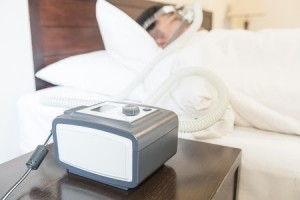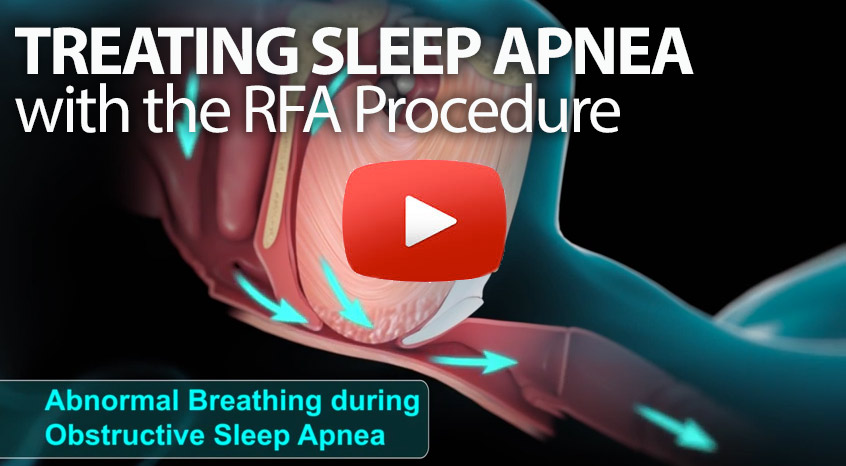CPAP (continuous positive airway pressure) machines are used to treat obstructive sleep apnea by supplying a constant and steady air pressure, a nose piece and a hose. Apnea is a condition marked by brief and repeated interruptions in your breathing during sleep. Sleep deprivation can cause daytime drowsiness, which can make it difficult to function at your job. The purpose of a CPAP machine is to eliminate the struggle between breathing and sleep. CPAP machines have advantages and disadvantages, but according to the National Sleep Foundation, the majority of users report relief from symptoms immediately. In addition, they report better mental alertness and increased energy.

A CPAP machine can provide a lot of relief for those suffering from sleep apnea, but it is not for everyone.
CPAP machines are not one-size-fits-all. Talk to your physician about the best model for you. The newer ones are smaller than a shoe box and are much quieter than the older models. Some tips on how to customize the system are below:
- Get a mask that fits well so that it feels comfortable
- If you have an outdated machine, try to upgrade. It is probably covered by insurance
- Consult with your doctor about any symptoms you experience. He/she can help remedy problems and make sure the machine is working properly
The most common CPAP side-effects are pressure or mask related. Sometimes patients experience claustrophobia from wearing the mask and others develop nasal congestion. Fortunately, serious side-effects are extremely uncommon. You can limit or stop some of them in the following ways:
- If you have a runny nose, talk to your doctor about using a nasal spray or decongestants
- Have your machine adjusted to reduce or eliminate problems
- Make sure air cannot leak around the mask
- Use a humidifier to reduce nasal irritation
- A bi-level positive airway pressure machine may work better because you can breathe out against a lower air pressure
All CPAP devices operate by pumping air pulled from a room, through a filter and into a small compressor. The compressor connects to a hose which is joined to a mask that you wear on your face. You can use the system for a pre-arranged period of time or for an entire night. The 3 main categories of masks are nasal pillow, nasal mask and full face mask. Details about CPAP machines pros and cons are below.
Pros: 1.They treat moderate to severe obstructive sleep apnea. 2. There is a wide variety of machines to choose from. 3. Different styles and designs are available.
Cons: 1.Discomfort. 2. Sore nose. 3. Irritation of the eyes. 4. High pressures are needed to keep your airway open at night.
Selecting a CPAP mask is one of the most important steps to take before starting CPAP treatment, and complete success or failure can rely on this decision. So it is best to select a mask that fits your particular needs. Focus your attention on the anatomy of your face, including the specific shape of your nose and how easily you can breathe through it. If you are a man, facial hair might influence the mask choice. You also might want to consider if you are likely to breathe through your mouth while asleep because this may lead to mask leaks. Existing medical conditions like a deviated septum may also influence your choice of mask. It is smart to select the smallest mask that you can tolerate. This will reduce the overall surface area and, thus, decrease air leaks and visibility of pressure marks. If possible, try the mask on in the store or take it home on a trial basis. If it does not work well, ask to return it in the first month for a replacement option.
For reasons mentioned above, CPAP devices are not for everyone and other treatment options exist, including surgical, lifestyle, and non-surgical. Oral appliances and Radio Frequency Ablation (RFA) are two popular choices. RFA in particular is an in-office procedure that offers patients the opportunity to not need a CPAP or oral device. But again, you should consult your doctor.
If you or someone you know is in need of a better night’s sleep, contact us for a no obligation consultation. We are the sleep specialists at Chevy Chase ENT located in the Virginia, Maryland, and Washington D.C. metro area dealing with sleep apnea and sleep-related problems. We can help diagnose your condition, recommend whether a sleep study would be beneficial, and offer you a variety of treatment options including CPAP, Radio Frequency Ablation (RFA) and more.
